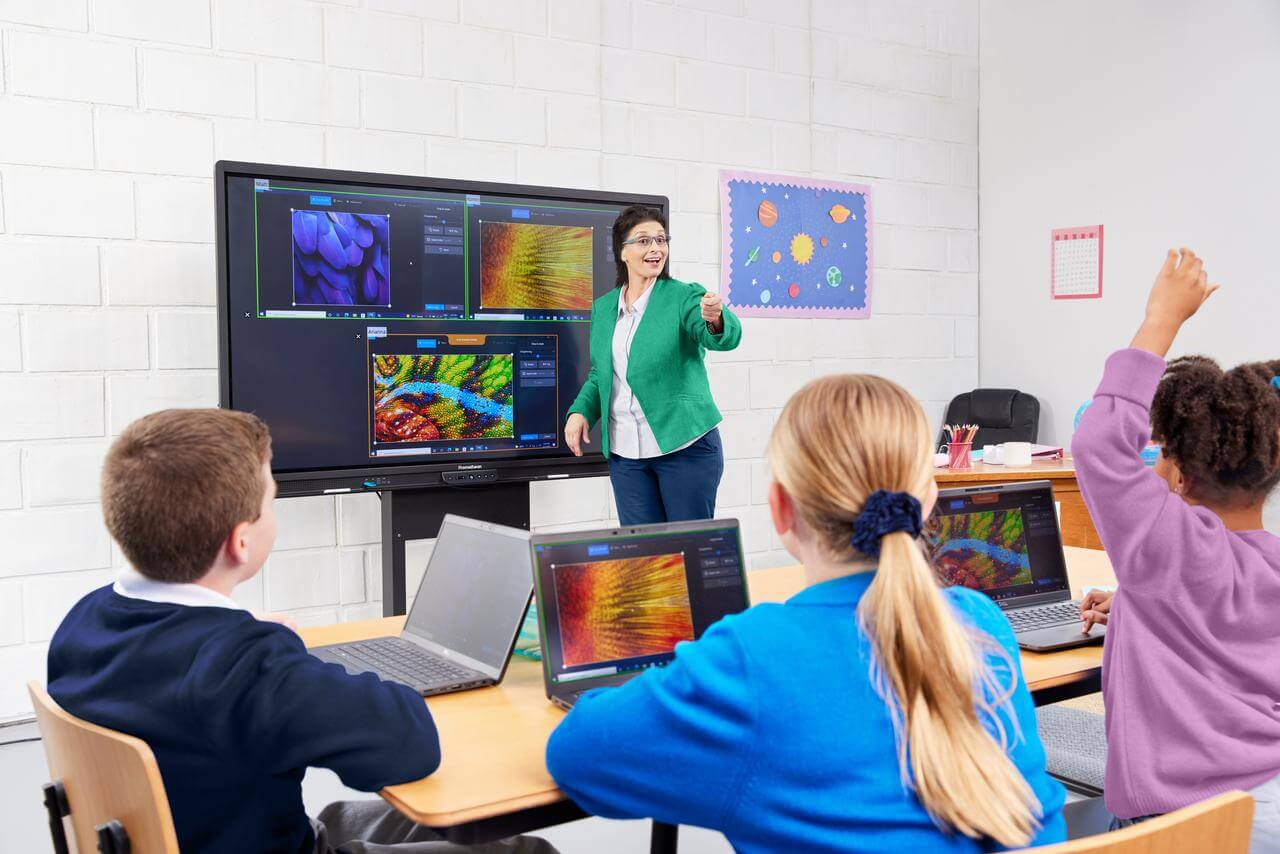Exploring the Various Training Strategies in Main Science Education And Learning Today
Inquiry-based knowing, hands-on experiments, and the combination of innovation are redefining how educators engage young minds. In addition, collective strategies and separated guideline are being used to cater to the diverse requirements of trainees, enhancing both interaction and understanding.
Inquiry-Based Knowing
Inquiry-Based Learning (IBL) is a pedagogical technique that encourages trainees to explore clinical ideas through questioning, examination, and hands-on testing. This method emphasizes the role of trainees as energetic participants in their learning, promoting critical thinking and analytic abilities. By involving with real-world concerns, trainees become inspired and curious, which enhances their understanding of scientific principles.
In IBL, instructors serve as facilitators, guiding pupils as they browse their questions as opposed to providing info straight. This student-centered approach enables for differentiation, suiting various discovering paces and styles. Trainees create abilities in creating hypotheses, creating experiments, and examining data, which are essential for scientific literacy.
Furthermore, IBL cultivates cooperation among students, motivating them to share concepts and searchings for. This cumulative inquiry promotes social abilities and a feeling of community within the class. The process of query urges resilience, as students discover to embrace failing as a stepping stone towards understanding.
Hands-On Experiments
Hands-on experiments are a crucial component of efficient scientific research education, matching the principles of inquiry-based knowing. These experiments allow trainees to engage directly with scientific principles, promoting a much deeper understanding through experiential understanding. By adjusting materials and observing outcomes, young learners can realize abstract theories in tangible methods.
Such activities promote crucial reasoning and analytic abilities, as students hypothesize outcomes, conduct experiments, and analyze results. This process urges them to ask concerns, refine their understanding, and create a clinical state of mind. Moreover, hands-on experiments can be tailored to varied understanding styles, ensuring that all trainees have the chance to involve meaningfully with the content.
Furthermore, hands-on experiments typically motivate collaboration among peers, promoting team effort and communication skills. Operating in teams enables students to share concepts, review searchings for, and learn from one an additional, which boosts their general educational experience.
Incorporating hands-on experiments into the main science curriculum not just enriches the finding out environment but additionally grows a lifelong passion in science. By actively taking part in their education and learning, trainees are more probable to create an enthusiasm for scientific questions that extends beyond the classroom.

Technology Assimilation
Integrating technology into main science education has actually become significantly crucial in fostering trainee involvement and boosting finding out end results. The use of digital devices, such as interactive simulations, virtual laboratories, and educational software, offers trainees with chances to check out scientific concepts in cutting-edge ways. These sources promote a much deeper understanding of complicated subjects by allowing students to picture and control variables that would be unwise in a traditional class setup.
In addition, modern technology combination urges individualized finding out experiences. Trainees can progress at their very own pace, revisiting tough principles with multimedia resources, which deal with different knowing designs. This versatility not only sustains individual development yet likewise cultivates a feeling of freedom in students.
Additionally, modern technology acts as a bridge to real-world science, attaching students with current study and professional contributions. Accessibility to clinical journals and online databases broadens trainees' perspectives on scientific questions and cultivates essential assuming skills.
Collaborative Knowing
Collaborative knowing plays a vital duty in primary scientific research education and learning by cultivating team effort and interaction skills amongst trainees. This approach encourages learners to function with each other, share expertise, and engage in analytical, which enhances their understanding of scientific principles. By getting involved in group tasks, pupils learn to verbalize their concepts, listen to varied viewpoints, and negotiate options, every one of which are crucial skills in both scholastic and real-world contexts.

Study shows that collaborative understanding can cause raised motivation and engagement in scientific research topics, as students discover satisfaction in common experiences (primary science tuition Singapore). Furthermore, this approach prepares trainees for future collective undertakings, equipping them with the skills required for reliable teamwork in higher education and expert settings. Inevitably, embracing collective understanding in primary science education can considerably enhance the understanding experience and promote a deeper understanding of clinical query
Distinguished Instruction

Differentiated instruction can manifest in different means, such as differing the material, procedures, or items of learning. Teachers might use tiered jobs that supply differing degrees of complexity, enabling trainees to work at their corresponding preparedness levels. In addition, versatile organizing strategies can assist in partnership amongst trainees with different capacities, fostering peer understanding.
Evaluation plays an important duty in this approach, as it educates guideline and helps teachers understand each pupil's special requirements. Formative evaluations, such as observations and quizzes, can assist instructors in readjusting their methods to boost discovering end results. primary science tuition Singapore. Eventually, by executing distinguished guideline in key scientific research education, educators can grow a much more equitable and efficient understanding atmosphere, equipping all trainees to reach their complete potential in understanding clinical sensations
Final Thought
In recap, the varied teaching strategies in main scientific research education, including inquiry-based knowing, hands-on experiments, innovation integration, collaborative knowing, and distinguished direction, jointly add to a more reliable knowing environment. These methods promote essential reasoning, problem-solving skills, and a much deeper comprehension of scientific principles. By implementing these methods, teachers can develop supportive and appealing classrooms that deal with the diverse demands of pupils, eventually cultivating a lifelong interest in science and improving scholastic accomplishment.
Inquiry-Based Learning (IBL) is a pedagogical technique that urges pupils to explore scientific ideas through doubting, investigation, and hands-on experimentation.Joint discovering plays a vital function in primary science education and learning by promoting team effort and interaction skills among trainees.Study suggests that collective discovering can lead to enhanced inspiration and engagement in scientific research topics, as pupils find pleasure in common experiences.In promoting a comprehensive knowing atmosphere, distinguished guideline emerges as a crucial method to helpful resources suit the varied requirements and capabilities of pupils in main scientific research education. Inevitably, by carrying out separated instruction in main scientific research education right here and learning, teachers can grow a more equitable and reliable understanding atmosphere, encouraging all trainees to reach their full possibility in comprehending scientific phenomena.
Comments on “Master Primary Science Concepts with Quality Tuition in Singapore”